35th Annual ACFE Global Fraud Conference (On-Demand)

Varies by Session
Online
Description
View sessions and earn CPE from the 35th Annual ACFE Global Fraud Conference from the comfort of your home or office any time that's convenient for you.
All sessions are available for ACFE CPE, with 21 presentations eligible for NASBA CPE. You will receive a separate certificate for each session you complete.
Purchase the 35th Annual ACFE Global Fraud Conference (On-Demand):
- Earn up to 30 NASBA CPE
- Access on-demand video recordings of over 70 conference sessions
- Have the flexibility to start or stop a course and pick-up right where you left off
Prerequisites
Varies by Session
CPE Information
| CPE Credit: | Up to 30 NASBA Credits |
|---|---|
| NASBA Information: | Fields of Study and NASBA-Approved CPE Credit Vary by Session |
| Advance Preparation: | Varies by Session |
| Last Updated: | June 2024 |
| Delivery Method: | Online |
Credit by Field of Study
| Auditing: | 30 CPE ( 7 NASBA + 23 ACFE) |
|---|---|
| Auditing - Governmental: | 4.5 CPE ( 3 NASBA + 1.5 ACFE) |
| Business Law: | 4.5 CPE ( 1.5 NASBA + 3 ACFE) |
| Information Technology: | 12.5 CPE ( 4.5 NASBA + 8 ACFE) |
| Management Services: | 4 CPE ( 1.5 NASBA + 2.5 ACFE) |
| Regulatory Ethics: | 1.5 CPE ( 0 NASBA + 1.5 ACFE) |
| Specialized Knowledge: | 17 CPE ( 4.5 NASBA + 12.5 ACFE) |
| Behavioral Ethics: | 13 CPE ( 5 NASBA + 8 ACFE) |
| Business Management and Organization: | 2.5 CPE ( 0 NASBA + 2.5 ACFE) |
| Communications and Marketing: | 4.5 CPE ( 0 NASBA + 4.5 ACFE) |
| Personal Development: | 5.5 CPE ( 1.5 NASBA + 4 ACFE) |
| Personnel and Human Resources: | 1.5 CPE ( 1.5 NASBA + 0 ACFE) |
Sessions
Keynote Session: Damian Williams - Keynote Session

Damian Williams, John Gill, J.D., CFE, John Warren, J.D., CFE, Natalie Lewis & Regents, Ross Pry
CPE: 1.5 | Ethics CPE: Yes
Session Level: Overview
Field of Study: Personal Development
Recommended Prerequisite: None
U.S. Attorney Damian Williams will accept the esteemed Cressey Award from the Association of Certified Fraud Examiners (ACFE). In this captivating general session, attendees will have the privilege of hearing from a distinguished leader in the realm of law enforcement and justice. With a career dedicated to combating fraud, crime, and corruption, Williams will share insights gleaned from the front lines of justice. Through riveting anecdotes and profound reflections, he will describe the challenges and triumphs encountered in the pursuit of truth and accountability. Williams' journey embodies the relentless pursuit of integrity and ethical conduct, from high-profile prosecutions to landmark legal victories. Don't miss this opportunity to witness firsthand the remarkable career of a true guardian of justice.
You Will Learn How To:
- Recognize potential challenges a fraud examiner could encounter in their field.
- Identify valuable insights gained from a career in combatting fraudulent activity, crime and corruption.
- Navigate the value of integrity and ethical conduct in a career fighting fraud.
This session provides ACFE ethics credit, which counts toward the ACFE's annual ethics CPE requirement for CFEs. To learn more about the ethics CPE requirement for CFEs, please visit ACFE.com/EthicsCPE.
The Tale of Two Risk Assessments: Sustainable Versus Scary - 2A (Repeats as 8A)

Katherine Robinson, CFE, GRCP
Enterprise Risk Manager Sterling Bank & Trust, FSB
CPE: 1.5 | Ethics CPE: No
Session Level: Intermediate
Field of Study: Auditing
Recommended Prerequisite: None
(Repeats as Session 8A) For many organizations, it is challenging to begin or maintain a catalog of risks and adverse conditions. They begin with the best intentions to identify a list of weaknesses and threats and the associated control activities, either current or planned, to mitigate them. This practice, otherwise known as a risk assessment, inevitably ends up turning into a checkbox exercise that loses all meaning over time. Risk assessments become overly long and detailed, time-consuming, a chore to maintain, unrelatable, uncontrollable and taxing on resources. Would you love to change the story? This session will help dispel these negatives and provide advice on how to create a risk assessment tool and process that is sustainable, scalable, succinct and significant. We will discuss how to create a risk taxonomy that maps to enterprise risk categories and a process to monitor current risks and catalog emerging ones.
You Will Learn How To:
- Categorize the existing and emerging risks facing your organization.
- Create a risk assessment tool and process that relates identified risks to enterprise risk categories.
- Plan routine analyses to identify necessary control activities to mitigate fraud risks.
Navigating Diversity, Equity and Inclusion in Fraud Investigations - 2B/8B
Risks and Awards: The Basics of Grant Fraud - 2C
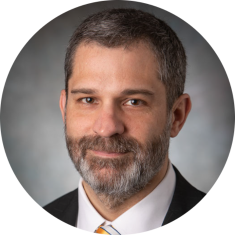
Ken Dieffenbach, CFE
Deputy Assistant Inspector General for Investigations U.S. Department of Energy
CPE: 1.5 | Ethics CPE: No
Session Level: Basic
Field of Study: Auditing (Governmental)
Recommended Prerequisite: None
Federal grants are one of the most powerful tools of the U.S. government; they fund scientific breakthroughs, social science research, transportation infrastructure, education and much more. However, as with all activities involving money, there are fraud risks ranging from simple asset misappropriation to more nuanced research misconduct and complex accounting schemes. In this session, we will discuss the basics of grant programs, address the common fraud risks and empower you to make an impact in preventing, detecting and investigating issues related to the misuse of these funds. Whether you receive, oversee, audit or investigate grant-funded programs, you will benefit from learning about what can and does go wrong and how you can better prepare yourself to mitigate the risks.
You Will Learn How To:
- Recall the basic framework of grant programs.
- Identify the common and uncommon fraud risks in these programs.
- Apply best practices to help mitigate grant fraud risks.
The Fraud Risk Management Guide and Other Emerging Guidance - 2D

Lucia Wind, CFE
Board Chair COSO
CPE: 1.5 | Ethics CPE: No
Session Level: Overview
Field of Study: Auditing
Recommended Prerequisite: None
In this session, you will gain an understanding of the Committee of Sponsoring Organizations of the Treadway Commission (COSO) and its collaboration with organizations such as the ACFE. The session will review the Fraud Risk Management Guide, Second Edition and provide you with tools to develop a fraud risk assessment, fraud risk program and an understanding of data analytics that can be applied to fraud risk detection. Additional time will be allocated to review other risk management guidance by COSO.
You Will Learn How To:
- Develop a fraud risk assessment as a part of a comprehensive fraud risk program.
- Apply data analytics to fraud detection.
- Recall new and emerging guidance from COSO and other organizations.
Insider Threats: Are They Getting the Required Attention? Sponsored by Guidehouse - 2E

Sandra Desautels, Marcus Christian, Jamie Wong
CPE: 1.5 | Ethics CPE: No
Session Level: Overview
Field of Study: Auditing
Recommended Prerequisite: None
The impact of having an organization’s critical assets misused or stolen can be devastating. Whether the act is a result of malicious intent, lack of education or naïveté, many industries have experienced exploitation due to insider threats that cause financial loss, reputation damage and more. Organizations should question whether their anti-fraud programs effectively prevent and detect such insider threats. This session will guide you through the steps to accurately identify and monitor insider threat risks, strategies for creating an anti-fraud culture and information from those who have addressed such risks.
You Will Learn How To:
- Recognize common forms and impacts of insider fraud.
- Differentiate common fraud schemes and their entry points.
- Identify the features of a successful fraud risk management program and anti-fraud culture strategy.
Revolutionizing Fraud Fighting: Boosting Your Productivity with AI and ChatGPT - 2F/8F

Mark Nigrini, CA(SA)
Professor West Virginia University
CPE: 1.5 | Ethics CPE: No
Session Level: Intermediate
Field of Study: Information Technology
Recommended Prerequisite: Knowledge of and experience with preparation of written reports of investigation findings; Knowledge of and experience with inter-organization communications.
Financial transactions are increasingly digital, and payments processing is increasingly automated, which makes our role as fraud examiners more important than ever. Now is the time to delve into the potential of AI platforms such as ChatGPT to raise our workplace productivity, assist our fraud examination workflows and speed up or automate routine tasks, allowing us to keep our focus on strategic fraud prevention and detection activities. By demonstrating AI’s capabilities in natural language processing and generation, we will show how AI-based tools can streamline communications, answer queries and help with interactions within your organization. Additionally, AI can even help us find the formula(s) that will return the desired results in Excel or any other app. We will also look at the darker side of AI to answer questions such as: What can ChatGPT and other tools learn from your data and queries and explicitly or implicitly pass on to the rest of its userbase? Or, if you repeatedly ask AI to identify the purchase of gift cards by employees using P-cards, will the AI tool “learn” that this is a recurring and significant problem in your company?
You Will Learn How To:
- Identify the potential positive impact of AI on productivity, efficiency and fraud detection.
- Include the use of AI in the planning and reporting phases of an investigation.
- Solve hypothetical and real-world problems with the help of AI.
- Appraise the confidentiality-related issues related to sharing data and information with the tool.
Implementing a Global Fraud Control Program - 2I

Marina Barakatt, J.D., CFE
Director of Ethics and Compliance Abt Global
CPE: 1.5 | Ethics CPE: No
Session Level: Basic
Field of Study: Management Services
Recommended Prerequisite: None.
Many international development companies have small fraud investigations teams based in a single country. This can slow the speed of investigations, create difficulties with language barriers and require international travel. But hiring a local investigator as a short-term consultant can add costs and several weeks to the investigation for onboarding, not to mention the potential for a poorly conducted investigation. However, there is a new approach: the Fraud Control Program. This program designates one person from each project — generally a member of the leadership team — as the Fraud Control Officer (FCO). This session will discuss the process of setting up the Fraud Control Program, including challenges and lessons learned, benefits of the program and a few case studies to show effectiveness. It will include tips for setting up a Fraud Control Program at any international organization.
You Will Learn How To:
- Identify the logistic and administrative requirements of a Fraud Control Program.
- Recognize opportunities for change and lessons to be learned from skeptical staff.
- Design a program to train existing staff to become Fraud Control Officers.
The Intersection of Fraud Prevention and Cybersecurity - 2J

Gideon Rasmussen
Cybersecurity Management Consultant vCISO
CPE: 1.5 | Ethics CPE: No
Session Level: Intermediate
Field of Study: Auditing
Recommended Prerequisite: Knowledge of and experience with the fundamentals of fraud prevention.
This session provides practical advice to bridge the gap between cybersecurity and fraud prevention practices. The presentation begins with an overview of fraud concepts using recent data on the threat landscape. We will look at risk through the perspectives of the chief financial officer (CFO) and chief information security officer (CISO) to identify gaps in fraud prevention between the two roles. We’ll examine fraud schemes such as business email compromise to investigate how fraud threat actors operate and include tips to detect fraud-related activity. Finally, we’ll look at how to effectively conduct a process risk assessment and discuss how to integrate fraud monitoring into established cybersecurity technology and processes.
You Will Learn How To:
- Differentiate fraud concepts, checks and balances, and the roles of the CFO and CISO.
- Identify a variety of fraud schemes, including data sources and testing procedures.
- Recall fraud prevention program topics and oversight.
Keynote Session: Jonna Mendez - General Session

Jonna Mendez
Former CIA Chief of Disguise and Author
CPE: 1 | Ethics CPE: No
Session Level: Overview
Field of Study: Specialized Knowledge
Recommended Prerequisite: None
Jonna Mendez served for 27 years at the Central Intelligence Agency (CIA). The CIA was considered to be a man's world, and Jonna faced a strong headwind throughout her career. Beginning as a contract wife performing secretarial duties, she parlayed her interest in photography into an operational role before moving into the disguise arena and working on the Asian subcontinent. She was eventually promoted to the CIA's chief of disguise, with a staff positioned around the world. Her office was the equivalent of Q in the James Bond movies, and her duties involved working against foreign targets considered to be enemies of the United States. Her book, “In True Face: A Woman’s Life in the CIA, Unmasked,” recounts the grit and good fortune it took for her to navigate a misogynistic world to forge an incredible career as a spy.
You Will Learn How To:
- Explore the world of espionage and intelligence gathering.
- Recognize the challenges women navigate in male-dominated organizations.
OSINT for Global Due Diligence - 4A

Cynthia Hetherington, CFE, MLS, MSM
CEO and Founder Hetherington Group
CPE: 1.5 | Ethics CPE: No
Session Level: Overview
Field of Study: Information Technology
Recommended Prerequisite: None
In an era of global operations and multinational partnerships, effective due diligence is critical for both financial decision-making and maintaining a good reputation. Cynthia Hetherington will explain how to employ open-source intelligence (OSINT) methodologies to access valuable information from global corporate databases, country-specific social media platforms and other online resources that can be used to find fraud that is impacting your company.
You Will Learn How To:
- Identify techniques for sourcing hard-to-find information on international organizations, companies and their executives.
- Navigate public records, legal filings and other relevant databases across multiple jurisdictions.
- Leverage tools and resources better to spot indicators of fraud or other risks that may impact your organization.
Panel Discussion: Solving for Who: Corporate Transparency, Beneficial Ownership and Fraud Investigations, Sponsored by Thomson Reuters - 4B

Rabihah Butler, Amanda DuPont, Jacob Denman
CPE: 1.5 | Ethics CPE: No
Session Level: Overview
Field of Study: Management Services
Recommended Prerequisite: None
You can never know too much about a business entity involved in a fraud investigation. On January 1, the Financial Crimes Enforcement Network (FinCEN) began accepting beneficial ownership information (BOI) reports for compilation in a database available for access later this year by authorized parties. This session will prepare you to find the beneficial owner, review business relationships and utilize that information to improve your investigations.
You Will Learn How To:
- Recognize the basic components of the BOI database.
- Analyze the importance of investigative tools in determining ownership structure.
- Evaluate how screening adverse media and background can contribute to proper investigations.
Get Rich Quick: A Case Study of Government Fraud - 4C

Rick Roybal, CFE
Senior Vendor Auditor Matador Resources
CPE: 1.5 | Ethics CPE: No
Session Level: Basic
Field of Study: Auditing (Governmental)
Recommended Prerequisite: None
This session will review a case study where a fraudster took advantage of lax internal controls, stole identities and then set up fake third parties to bilk the Oregon Health Authority out of $1.5 million. The fraudster’s organization gave them the authority to source and approve payments to third parties, which she took advantage of and defrauded the citizens of Oregon to line her own pockets.
You Will Learn How To:
- Analyze why vendor fraud and embezzlement threaten our organizations.
- Identify methods used to commit financial fraud.
- Recognize the warning signs of embezzlement.
- Implement essential controls to mitigate embezzlement and vendor fraud at all levels of an organization.
Navigating the Gray Areas: Ethical Considerations for Fraud Examiners - 4D
The Traditional Financial System and the Adoption of Digital Asset Technology - 4E

David Utzke, CFE, CDFE, CFI
Sr. Director, Digital Asset Security – Emerging Technology Research & Education Wave Digital Assets; Retired Army Special Operation/U.S. Treasury-IRS CI Cybercrimes HQ
CPE: 1.5 | Ethics CPE: No
Session Level: Advanced
Field of Study: Specialized Knowledge
Recommended Prerequisite: Participant should have a basic understanding in the difference between the virtual digital asset technologies and the DLT-based digital asset technologies; Participants should have a basic understanding of the traditional banking and financial services
This session will provide an introduction to the typology, topology and hierarchy of all digital assets, which includes assets that use distributed ledger technology (DLT) and non-DLT digital assets. To properly investigate a digital currency transaction, it is imperative to understand how digital wallet software operates, which differs by the type of digital asset and the wallet software that supports it. Traditional banking and financial service providers are rapidly adopting the tokenization of real-world assets (RWAs) and in real-life assets (IR-LAs). This session will discuss how the tokenization of RWAs and IR-LAs is already in use in the traditional banking system and the pathway to what some believe will become the most prominent digital currency — Central Bank Digital Currency (CBDC). There is significant focus on retail CBDC by many central banks around the globe, and law enforcement, investigators and fraud examiners will need to adopt new investigative methods as the digital asset technologies continue to evolve. Our discussion will review the various architectural designs and delivery methods currently being used or researched in CBDC. In addition, there will be a brief discussion of the FedNow payment system as an intermediary step on the way to introducing a U.S. retail CBDC and some of the potential fraud vectors and unaddressed cybersecurity vulnerabilities of that system.
You Will Learn How To:
- Differentiate digital assets using technology criteria.
- Recall the adoption of tokenization of RWAs and IR-LAs by the banking sector.
- Compare retail CBDC and wholesale CBDC.
- Identify the common architectures and delivery methods available for retail CBDC and the fraud risks and cybersecurity vulnerabilities.
You Think You’ve Found a Fraud — Now What? - 4F

John Tonsick, CFE, CPA
CEO Fraud Solutions
CPE: 1.5 | Ethics CPE: Yes
Session Level: Intermediate
Field of Study: Personal Development
Recommended Prerequisite: Attendees should be familiar with fraud investigation techniques.
Learning that you have been victimized by fraud is a painful experience — and not just financially. Perpetrators are often long-term, trusted employees and sometimes even family members. It can provoke strong emotional responses on the part of victims. By reacting impulsively, victims might confront suspects prematurely, overlook or spoil critical evidence and make decisions that can make learning the truth more difficult, even impossible. Using case studies and a little magic to illustrate the points, this session will discuss how the experience, expertise and objectivity of a CFE can make the difference between success and failure.
You Will Learn How To:
- Identify how the “grief cycle” influences the behavior of fraud victims.
- Recognize the common critical mistakes made by victims and the consequences of those mistakes.
- Apply best practices for working with fraud victims to maximize success.
This session provides ACFE ethics credit, which counts toward the ACFE's annual ethics CPE requirement for CFEs. To learn more about the ethics CPE requirement for CFEs, please visit ACFE.com/EthicsCPE.
Traditional Investigative Techniques in a World of AI - 4I
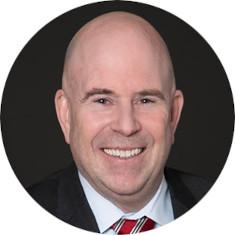
John Curry, J.D., CFE, CGI
Senior Managing Director Guidepost Solutions, LLC
CPE: 1.5 | Ethics CPE: No
Session Level: Intermediate
Field of Study: Information Technology.
Recommended Prerequisite: The attendees should have knowledge of and experience conducting — investigations and be familiar with some traditional methods of investigating criminal cases.
This session will provide a detailed summary of traditional investigative techniques and how criminal investigations are being impacted by AI and technological advancements. We will review the pros and cons of both established and emerging techniques with a focus on ethical and legal concerns that run through all investigations. Additionally, two case studies will be discussed in which the benefits and dangers of AI are made apparent. You will be instructed on the adaptation to and benefits of AI while also focusing on the critical role of proper training for investigators.
You Will Learn How To:
- Recognize the importance of combining traditional investigative techniques with AI and modern technology to improve the quality of investigations and subsequent prosecutions.
- Compare the benefits and risks of using traditional and modern techniques and AI.
- Identify the role of proper training for investigators using traditional and modern techniques.
Chasing Ghosts: Identity Theft, Document Alteration and PPP Loans - 4J

Harry Lidsky, MBA, CCI, CIG
Founder 4th Dimension Investigative and Security Solutions, LLC
CPE: 1.5 | Ethics CPE: No
Session Level: Overview
Field of Study: Auditing
Recommended Prerequisite: None
This case study will provide an overview of an intensely challenging law enforcement investigation in which two fraudsters took advantage of relaxed scrutiny during the pandemic to steal identities, open bank accounts, obtain PPP loans, transfer funds and invest in cryptocurrency and stocks. They used rental cars and apartments that tied back to the victims of identity theft, which left investigators with few clues. The case was solved using high-tech electronic surveillance, low-tech surveillance and tenacity. The mastermind was convicted at trial for attempting to steal over $10 million in PPP loan funds and was recently sentenced to 25 years in federal prison. This case marked the first arrests, first conviction, first trial, first trial conviction and longest prison sentence for cases brought under the federal Pandemic Response Accountability Committee (PRAC).
You Will Learn How To:
- Identify the challenges associated with identity theft.
- Recall the complex investigative strategy used to apprehend these fraudsters.
- Recognize the importance of finding a strategic starting point in fraud investigations.
Crypto Litigation and Enforcement: Lessons from Sam Bankman-Fried - 5A

Frank Partnoy, Ji KimJack McNeily, Adam Zarazinski,Taylor Etzell
CPE: 1.5 | Ethics CPE: No
Session Level: Intermediate
Field of Study: Business Law
Recommended Prerequisite: Prior experience with the fraud examination process; Knowledge of the current state of technology and alternative currencies as these relate to fraud.
The collapse of FTX and the conviction and sentencing of Sam Bankman-Fried provide an opportunity to reflect on lessons learned from these watershed events. What kinds of private litigation should we expect? Which suits are most likely to succeed? What about government enforcement priorities? How might future litigation and enforcement in crypto cases differ from other areas? In this session, a panel of experts will focus on addressing these questions and assessing recent lawsuits and enforcement actions related to cryptocurrencies. The panel, consisting of a senior SEC enforcement official, the head of litigation at a global law firm and a prominent plaintiffs’ lawyer, will discuss their perspectives on these issues and the various ways legal claims address fraud in the crypto markets.
You Will Learn How To:
- Identify key lessons from the collapse of FTX and the sentencing of Sam Bankman-Fried.
- Discern successful strategies for litigating cases involving cryptocurrencies.
- Recognize the tools and techniques that can assist in cryptocurrency investigations.
- Differentiate between the obstacles, challenges and limitations of litigating cryptocurrency cases and other fraud-related litigation
The COVID Con: Health Care Fraud in the Pandemic - 5C
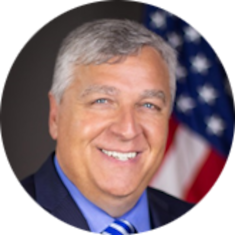
Chris Covington, CFE
Pandemic Response Coordinator U.S. Department of Health and Human Services
CPE: 1.5 | Ethics CPE: No
Session Level: Intermediate
Field of Study: Specialized Knowledge
Recommended Prerequisite: Knowledge and experience working with fraud in the healthcare system; Working knowledge of data analytics in a fraud examination.
The COVID-19 pandemic offered a unique opportunity for fraudsters to capitalize on new ways to fleece health care programs. From telemedicine to lab testing, there were many methods to steal money from public and private insurers. Guardrails came down to address historic challenges to the health care system, and fraudsters developed techniques to take advantage of new programs such as the Provider Relief Fund and COVID-19 Uninsured Program. Commercial health insurance payers and Medicare/Medicaid were confronted with “bustout” schemes involving thousands of false claims relating to COVID-19 testing and over-the-counter test kits. Organized criminal enterprises used stolen identities to dump vast numbers of claims, then absconded with the proceeds. This session will describe in detail how fraudsters perpetrated their crimes and explain how data analytics were used to identify the offenders, prevent improper payments and claw back stolen funds. You will leave with an understanding of health care fraud during the pandemic and how its impact may be long-lasting, as “COVID cons” continue to perfect their art in anticipation of the next public health emergency.
You Will Learn How To:
- Identify new schemes that emerged during the COVID-19 pandemic.
- Recognize how organized criminal enterprises operate in the health care space.
- Determine how data analytics can be used to combat health care fraud.
Efficient Engagement Management for Forensic Accountants: Tools and Strategies - 5D
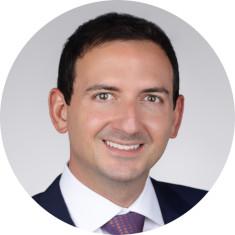
Adam Rabinowitz
Principal and Practice Leader - Forensic, Advisory and Valuation Services Kaufman Rossin & Co.
CPE: 1.5 | Ethics CPE: No
Session Level: Basic
Field of Study: Business Law
Recommended Prerequisite: None
This session is tailored to forensic accountants involved in litigation consulting and expert witness services. It offers a comprehensive and practical guide on how to manage engagements effectively throughout the entire life cycle, starting with the initial receipt of documents and extending to workpaper preparation, reporting and expert testimony. During this session, we will discuss strategies for document handling, workpaper management, communication with counsel and reporting. Additionally, we will explore the technologies used to streamline these processes and enhance overall efficiency and effectiveness.
You Will Learn How To:
- Apply techniques to effectively receive, organize and manage documents from legal counsel.
- Utilize strategies to prepare workpapers, including documenting methodologies, assumptions and data sources.
- Establish clear lines of communication with attorneys to improve the overall efficiency of the engagement.
Fraud Risks in Green Public Procurement - 5E

Tom Caulfield, CFE, CIG, CIGI
Chief Operating Officer Procurement Integrity Consulting Services
CPE: 1.5 | Ethics CPE: No
Session Level: Intermediate
Field of Study: Auditing (Governmental)
Recommended Prerequisite: Working knowledge on the fundamental elements of the procurement processes and an appreciation of what green products and service include.
Over the last decade, there has been growing concern about environmental crime (i.e., “green corruption”) and its impact on global warming, climate change and sustainable natural resources. This concern has contributed to a rise in government and public interest in “green public procurement” (GPP). GPP is the process for procuring goods, services and works with a reduced environmental impact throughout their life cycle when compared to goods, services and works with the same primary function. GPP, like any procurement process, is vulnerable to the traditional corruption and fraud schemes. However, GPP does have unique corruption and fraud risks such as counterfeit parts, product substitution and fake eco-labeling stemming from improper monitoring and verification of “green” goods. GPP is also vulnerable to “greenwashing,” which occurs when a corrupt company falsely certifies that it is taking certain measures to protect the environment. Lastly, because green products and services are perceived to be more expensive to procure, they are vulnerable to cost mischarging schemes.
You Will Learn How To:
- Identify strategies for advancing legitimate GPP.
- Recognize the unique corruption and fraud risks associated with GPP.
- Distinguish sustainable GPP using available publications.
Elevating Internal Audit's Role and Relevance Through Connected Risk, Sponsored by AuditBoard - 5F

Tom O'Reilly
Field Chief Audit Executive, Connected Risk Advisor AuditBoard
CPE: 1.5 | Ethics CPE: No
Session Level: Basic
Field of Study: Auditing
Recommended Prerequisite: None
In this session, learn how leading chief audit executives have raised the role and prominence of internal audit through the leadership and connection of risk and assurance functions. Perspectives, best practices and case studies from AuditBoard’s recent research and survey report will highlight strategies for making the case for, implementing and executing a connected risk and combined assurance program.
You Will Learn How To:
- Recognize the business case for internal audit and risk functions to be led by the same department.
- Optimize the current state of audit operations and incorporate enterprise risk activities to support the consolidation of audit and risk responsibilities.
- Recall the value that a modern, connected risk team can provide to their organization
Interacting with People: Seeking the Truth - 5J

Mick Symons LLM, CFE, CCEP
CEO Anti-Corruption Consultants Australia
CPE: 1.5 | Ethics CPE: No
Session Level: Overview
Field of Study: Communications and Marketing
Recommended Prerequisite: Knowledge and experience in the fundamentals of investigation and interviewing; An understanding of the investigative process when dealing with witnesses and/or suspects.
This is not a session on a specific interview process. It is a review of the various methods promoted such as REID, Kinesic, Wicklander-Zulawski Method, PEACE, cognitive interviewing, conversation management and trauma-based interviewing. This session will provide an overview of the various interviewing techniques and their effectiveness.
You Will Learn How To:
- Recognize and apply various interview techniques.
- Contrast the pros and cons of these techniques.
- Determine the need to be flexible when speaking with witnesses/suspects.
The Value in Establishing Public-Private Partnerships - 6A

Victor Cardona CFE, MBA , Lauren Kohr
CPE: 1 | Ethics CPE: No
Session Level: Overview
Field of Study: Business Management & Organization
Recommended Prerequisite: None
Join two public-private partnership (PPP) experts for a collaborative session that delves into the dynamic world of PPPs and their pivotal role in the fight against financial crimes. Explore the blueprint for bridging the gap between the private and public sectors, fostering enhanced communication and building a robust framework for sustainable and operationalized partnerships.
This session will walk you through the process of establishing a PPP and illustrate its framework. Discover the myriad benefits of PPPs, and gain insights into best practices and strategies for overcoming potential challenges. Don’t miss this opportunity to grasp the tangible value that emerges when private industries unite with public agencies in the fight against financial crimes.
You Will Learn How To:
- Develop a framework for establishing a public-private partnership.
- Identify the benefits of PPPs for fighting financial crime.
- Apply best practices to encourage communication between stakeholders in PPPs.
The Blind Spot of Cognitive Bias: Fraud Examination and False Confessions - 6B

Beth Mohr, CFE, CFCS
Managing Partner McHard Accounting Consulting LLC
CPE: 1 | Ethics CPE: Yes
Session Level: Intermediate
Field of Study: Behavioral Ethics
Recommended Prerequisite: Knowledge of ACFE’s Professional Standards; Basic understanding of the aspects of interviewing in a fraud examination.
Cognitive biases are the unconscious and unintentional errors in judgment that occur on the part of all humans every day. Cognitive bias on the part of investigators, specifically confirmation bias, is implicated most often in cases where subjects falsely confessed or were wrongly convicted. Confirmation bias is also the most common cause of cases where employees confessed to fraud when they did not actually do anything wrong, even faced with resignation, paying restitution, criminal prosecution or other undesirable outcomes. It is nearly impossible to imagine confessing to something you did not do, yet DNA exoneration in criminal cases proves that it is alarmingly common. Lawsuits over false confessions in occupational fraud investigations cost employers millions of dollars every year. Understanding cognitive bias is the first step to mitigating it during fraud examinations, investigations, interviews and audits. By its very definition, cognitive bias is unconscious—it is a human blind spot. This session will cover the different types of bias cognitive bias and how they send fraud investigations in the wrong direction, potentially resulting in wrongful terminations, wrongful prosecutions, false confessions and costly lawsuits. This session will also introduce simple strategies to combat cognitive bias and minimize the effects of this aspect of human nature on fraud examinations.
You Will Learn How To:
- Examine and apply key concepts of cognitive bias to real-world situations.
- Assess possible cognitive biases present during fraud examinations.
- Identify and manage cognitive bias in attendees’ own professional lives.
- Evaluate strategies to minimize the effects of cognitive bias in fraud examinations and investigations, whether undertaken or supervised.
This session provides ACFE ethics credit, which counts toward the ACFE's annual ethics CPE requirement for CFEs. To learn more about the ethics CPE requirement for CFEs, please visit ACFE.com/EthicsCPE.
Lessons from Wire Transfer Fraud in Real Estate - 6C
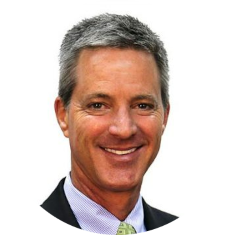
Matt McBride, CFE, KTP, MTP
President MKM Consulting Services
CPE: 1 | Ethics CPE: No
Session Level: Basic
Field of Study: Specialized Knowledge
Recommended Prerequisite: None
Hackers and fraudsters are tricking buyers, sellers, real estate agents and loan officers in real estate transactions into wire transfer fraud. This session will cover signs of wire transfer fraud, the potential pitfalls during the closing process and how to keep your company and your customers safe. The session will review several fraudulent emails sent in attempts to steal money. It will explore look at cases of successful thefts to learn what went wrong and how they could have been prevented. Finally, the session will review prevention measures and what to do when your organization becomes the target of a wire fraudster.
You Will Learn How To:
- Identify signs of wire transfer fraud attempts in email content.
- Apply fraud mitigation measures to case studies of successful fraud in real estate transactions.
- Determine effective wire transfer fraud prevention methods.
Expanding Fraud Risk Awareness: Rationalization and Dark Triad Personalities - 6D

Stephanie Mongiello, CFE
Associate Professor of Accounting at the University of North Texas at Dallas
CPE: 1 | Ethics CPE: Yes
Session Level: Intermediate
Field of Study: Behavioral Ethics
Recommended Prerequisite: Familiarity with the Fraud Triangle (pressure, opportunity, rationalization); Knowledge and understanding of the aspects of rationalization.
To effectively prevent and detect fraud, you should have a good understanding of the Fraud Triangle, which is a helpful tool to be able to “think like a fraudster.” While pressure and opportunity are relatively straightforward elements of the Fraud Triangle, rationalization is more complex and less understood than the other elements. The element of rationalization may apply differently depending upon the type of fraudster you are dealing with: a predator with a dark triad personality or a situational fraudster. A predator fraudster may have no conscience, such that rationalization is not actually required. For a predator fraudster, the mere presence of opportunity may lead to fraud. For a situational fraudster, on the other hand, a traditional application of the rationalization element will apply. To prevent and detect the two different types of fraudsters, different approaches are required. This presentation explains the differences between the two different types of fraudsters, how the rationalization element of the Fraud Triangle applies to both, details prevention and detection strategies for dealing with both types and highlights recent fraud cases that exemplify different variations of fraudsters.
You Will Learn How To:
- Contrast the differences between a predator fraudster and a situational fraudster.
- Compare how the rationalization element of the Fraud Triangle applies to different types of fraudsters.
- Identify prevention and detection strategies that are specific to each type of fraudster.
- Examine real fraud cases to identify what type of fraudster was involved and how the fraud may have been better prevented or detected.
This session provides ACFE ethics credit, which counts toward the ACFE's annual ethics CPE requirement for CFEs. To learn more about the ethics CPE requirement for CFEs, please visit ACFE.com/EthicsCPE.
Secure Your Digital Footprint from Shadow Threats - 6E

Walt Manning, CFE
CEO Techno-Crime Institute
CPE: 1 | Ethics CPE: No
Session Level: Basic
Field of Study: Information Technology
Recommended Prerequisite: None
In an era when technology is growing exponentially, you are tasked with leveraging digital tools to conduct investigations while mitigating the risks that come along with these tools. This session will inform you about the potential dangers that lurk in the digital shadows. We will put a new perspective on how your “digital footprint” — the information about you readily available on the internet—can be exploited, putting you at risk both professionally and personally. What if the fraudsters could use this information to discredit or distract you from your investigation? Could the available information about you be used to track your activities? We’ll discuss the technical risks of your devices, communications and social media activities, as well as the security of the data related to your investigations. Join us as we arm you with knowledge and tactics to improve your operational security and shine a light on the digital shadows.
You Will Learn How To:
- Recognize the components that make up an individual’s digital footprint.
- Identify the risks associated with digital footprints.
- Apply best practices to protect investigative communications and data.
- Implement safeguarding and protection strategies.
Fraud-Proof Your Nonprofit: Identifying Key Practices to Reduce Risk - 6F

Rollie Dimos, CFE, CIA
President Administrative Consulting Ministry
CPE: 1 | Ethics CPE: No
Session Level: Basic
Field of Study: Auditing
Recommended Prerequisite: None
This session will identify key controls necessary to reduce the risk of fraud in nonprofit organizations. By examining real fraud schemes at religious and other nonprofits, we will identify best practices to prevent and detect abuse in your nonprofit organization. Using the Occupational Fraud 2024: A Report to the Nations, the session will delve into the specific results for nonprofit organizations, highlight the common fraud schemes that impact nonprofits and identify processes and controls to help minimize the risk of those fraud schemes. The presentation will also discuss what leaders need to know if they uncover abuse, identify best practices to help navigate the process and highlight some lessons learned from others who have experienced and recovered from fraud.
You Will Learn How To:
- Examine common fraud schemes that impact nonprofits.
- Identify key controls to minimize common fraud schemes at nonprofits.
- Apply lessons learned from other organizations who have experienced fraud.
- Recognize what leaders should do when investigating and responding to fraud at nonprofits.
Increasing the Perception of Detection: Controls That Address the Mind of the Perpetrator - 6I

Steven Dawson, CFE, CPA
President Dawson Forensic Analytics, PLLC
CPE: 1 | Ethics CPE: Yes
Session Level: Basic
Field of Study: Behavioral Ethics
Recommended Prerequisite: None
This session will discuss underutilized internal controls that address the mind and emotions of the perpetrator, rather than the typical controls such as dual authorizations. By using control processes that address the emotions and thoughts of a potential perpetrator, we might stop potential fraud before we get to the existing controls that can be overridden. The primary goal of this session is to introduce cost-effective processes that increase the perception of detection, which is considered the primary internal control that can be implemented in any organization.
You Will Learn How To:
- Identify controls to address the mind of the perpetrator.
- Apply these controls to increase the perception of detection.
- Recognize where typical control failures occur and why.
This session provides ACFE ethics credit, which counts toward the ACFE's annual ethics CPE requirement for CFEs. To learn more about the ethics CPE requirement for CFEs, please visit ACFE.com/EthicsCPE.
Matt Friedman, Sarah Carver & Jennifer Griffith, sponsored by Thomson Reuters - Keynote Session

Matt Friedman, Sarah Carver, Jennifer Griffith
CPE: 1.5 | Ethics CPE: Yes
Session Level: Overview
Field of Study: Specialized Knowledge
Recommended Prerequisite: None
Every four seconds, another person enters a human trafficking situation somewhere in the world. It is estimated that there are more than 50 million people in modern-day slavery—more than at any other time in history. To make sense of this important issue and its relevance to today’s banking community, Matt Friedman will offer a comprehensive update on this topic.
You Will Learn How To:
- Analyze the relevance of the changing human trafficking paradigm to the banking sector.
- Recall global trends and patterns and theorize the potential effects of emerging legislation.
- Identify modern slavery typologies used to identify red flags for big-data searches.
- Navigate emerging ESG efforts related to modern slavery and their influence on major stock exchange policies and procedures.
- Apply tangible, practical tools and approaches used by corporations throughout the world to help identify and address this potential problem.
This session provides ACFE ethics credit, which counts toward the ACFE's annual ethics CPE requirement for CFEs. To learn more about the ethics CPE requirement for CFEs, please visit ACFE.com/EthicsCPE.
Examining the Alex Murdaugh Case from a Fraud Investigator’s Perspective - 8C

Travis Casner, CFE , Helga Zauner CFE, CVA, MAFF
CPE: 1.5 | Ethics CPE: No
Session Level: Overview
Field of Study: Specialized Knowledge
Recommended Prerequisite: None
This session will examine the Alex Murdaugh case, analyzing in detail the financial crimes that allegedly led Murdaugh to murder his wife and son. We will touch on the mechanics of his alleged frauds against clients and his own law firm, analyze why he got away with it for as long as he did and how he finally got caught.
You Will Learn How To:
- Recall the facts of the Murdaugh case with a focus on the alleged financial crimes.
- Investigate the factors that allowed Murdaugh to conceal his alleged financial crimes without detection for over a decade.
- Determine ways that the alleged frauds could have been prevented or detected sooner.
The Realities of Blowing the Whistle: Behind ‘The Big Conn’ - 8D

Sarah Carver, Jennifer Griffith
CPE: 1.5 | Ethics CPE: Yes
Session Level: Basic
Field of Study: Regulatory Ethics
Recommended Prerequisite: None
Making the decision to report fraud or misconduct often permanently changes lives. In this session, ACFE President John Gill, J.D., CFE, will speak with Sarah Carver, CFE, and Jennifer Griffith, CFE, who were featured in the Apple TV+ docuseries “The Big Conn” after they played roles in exposing one of the largest frauds to ever affect the U.S. Social Security Administration. This session will also feature the premiere of "Silence No More," an ACFE-produced short film, that provides a closeup look at their frustration, fear and courage in standing up to their bosses at their agency.
You Will Learn How To:
- Identify impacts that reporting fraud can have on whistleblowers.
- Ascertain effective and ineffective elements of fraud reporting protocols.
- Respond to reports of fraud and misconduct in a manner that protects whistleblowers.
This session provides ACFE ethics credit, which counts toward the ACFE's annual ethics CPE requirement for CFEs. To learn more about the ethics CPE requirement for CFEs, please visit ACFE.com/EthicsCPE.
Panel: Fraud Examination in Latin America - 8E

Marta Cadavid Acevedo, CFE, AML Patricio Munoz, CFE, CPA, Dr. Muna Buchahin, CFE, CGAP, CRMA, Alexandre de Genaro, CFE
CPE: | Ethics CPE: No
Session Level: Overview
Field of Study: Auditing
Recommended Prerequisite: None
Whether you are a seasoned fraud examiner from a Latin American country or tasked with conducting fraud examinations in the region, the perspectives provided in this discussion will enhance the effectiveness of your anti-fraud efforts. In this panel discussion, an accomplished group of fraud examiners, with decades of experience, will delve into the unique circumstances and considerations that characterize the anti-fraud profession in Latin America.
You Will Learn How To:
- Recognize the regional conditions that impact fraud examinations in Latin America.
- Relate appropriate controls and procedures to fraud typologies prevalent in the region.
- Differentiate fraud risks in Latin America from other regions.
The Fraud Detection Benefits of Bitcoin’s Unspent Transaction Output System - 8J

Sean Tweed, CFE
Fraud & Cryptocurrency Investigator The Preston Matthews Group
CPE: 1.5 | Ethics CPE: No
Session Level: Intermediate
Field of Study: Specialized Knowledge
Recommended Prerequisite: Basic knowledge of bitcoin, cryptocurrency transactions and blockchain properties.
This session explores Bitcoin’s transactional properties and also challenges common misconceptions about its anonymity. While often considered an anonymous form of online banking, Bitcoin’s Unspent Transaction Output System (UTXO) enables traceability akin to physical cash transactions. The system combines multiple inputs and outputs, allowing for rules and heuristics that assist in blockchain forensics, which help de-anonymize blockchain data for practical use in fraud investigations. Sean Tweed will discuss real cases that demonstrate how UTXO tracing was employed to uncover fraudulent activities.
You Will Learn How To:
- Recall the basics of Bitcoin’s unique transactional framework, including the UTXO System and its divergence from traditional account models.
- Determine how Bitcoin’s transactional transparency resembles traceable cash transactions and challenges common misconceptions about its anonymity.
- Navigate the rules and heuristics associated with the UTXO System.
- Apply practical skills in using UTXO analysis to trace stolen funds and uncover transactional links.
Emmitt Smith, Lizzie Johnson, Jeff German - Keynote Session

Emmitt Smith, Lizzie Johnson
CPE: 1 | Ethics CPE: No
Session Level: Overview
Field of Study: Personal Development
Recommended Prerequisite: None
In 2022, Las Vegas Review-Journal investigative journalist Jeff German had just begun picking at the threads of a story about a Ponzi scheme that targeted members of the Mormon church. But he was murdered by a local official who was the subject of his reporting before he got the chance to write it. After his death, Washington Post reporter, Lizzie Johnson, took up his mantle and finished the story for him. In this session, the ACFE will be honoring German posthumously for his relentless pursuit of fraud and corruption through his 40-year reporting career with the presentation of the Guardian Award to Johnson, who will be accepting for both she and German. Johnson will also be joined by Glenn Cook, German’s colleague, and the executive editor of the Las Vegas Review-Journal. The Guardian Award is given annually to a journalist whose determination, perseverance and commitment to the truth has contributed significantly to the fight against fraud.
Through engaging anecdotes and practical advice, Emmitt Smith will delve into the principles of effective leadership that have propelled him to success both on and off the field. Additionally, Smith will shed light on his entrepreneurial journey, highlighting the importance of integrity and authenticity in the sports memorabilia industry. Prepare to be inspired as Smith shares his vision for a future where trust and transparency are a priority, leaving a lasting impact on the world of sports and beyond.
You Will Learn How To:
- Identify the principles of effective leadership.
- Recognize the role of integrity and authenticity in building a strong foundation for future success.
- Investigate the impact of determination, perseverance and commitment to the truth on the fight against fraud.
A Case Study in Provider Fraud - 10C
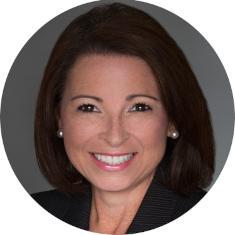
Leah Lane, CFE
Director SunHawk Consulting
CPE: 1.5 | Ethics CPE: No
Session Level: Basic
Field of Study: Auditing
Recommended Prerequisite: None
This session will walk through an investigation that centered around a medical practice acquisition with little due diligence that identified different frauds and resulted in costly litigation. The presentation will a highlight False Claims Act, conflict of interest, and misrepresentation of a provider violations that were discovered during the investigation.
You Will Learn How To:
- Identify and recognize records that can reveal and prove provider fraud.
- Recall specific rules and regulations related to provider billing and coding.
- Understand the importance of a robust due diligence program when dealing with medical practice acquisitions.
In Pursuit of Integrity: Insights on Shaping an Ethical Culture and Resolving Ethical Dilemmas in the Workplace - 10D

Bethmara Kessler, CFE
Speaker and Advisor Former ACFE Regent
CPE: 1.5 | Ethics CPE: Yes
Session Level: Overview
Field of Study: Behavioral Ethics
Recommended Prerequisite: None
Most organizations hope that their employees have strong ethics and integrity and will choose to “do the right thing” in all situations. In reality, it is not that simple. In this session, we will discuss the real challenges leaders face when trying to develop and sustain an ethical culture. We will look at cases of ethical failure to better understand how those challenges can lead to suboptimal decision-making. Then we will explore ideas that can help shape and sustain an ethical culture. Finally, you will be challenged to consider how they would personally handle ethical dilemmas in the workplace.
You Will Learn How To:
- Assess the ethical culture dilemma from a leadership point of view.
- Explore cases of ethical failure.
- Apply practical ideas for shaping an ethical culture.
- Recall strategies to help navigate ethical dilemmas in the workplace.
This session provides ACFE ethics credit, which counts toward the ACFE's annual ethics CPE requirement for CFEs. To learn more about the ethics CPE requirement for CFEs, please visit ACFE.com/EthicsCPE.
Building a Crypto Compliance Program and a Crypto Investigations Team - 10E
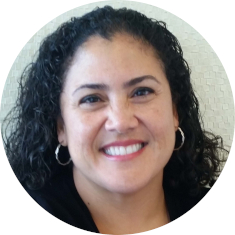
Lourdes Miranda, CFE
CEO FinTech Advisory Group, LLC
CPE: 1.5 | Ethics CPE: No
Session Level: Advanced
Field of Study: Specialized Knowledge
Recommended Prerequisite: Knowledge of the crypto ecosystem, Knowledge of BSA AML/CFT laws, rules and regulations.
As crypto assets become even more incorporated into regular business transactions and organizations’ asset portfolios, compliance and investigations involving crypto and other digital assets will be more commonplace. This session will explore the risks, the financial crimes and how to mitigate and investigate in the crypto ecosystem.
You Will Learn How To:
- Recall how bad actors are committing financial crimes involving crypto.
- Develop a strong crypto compliance and crypto investigations program.
- Discern successful strategies for tracing and analyzing crypto transactions.
- Identify red flags that trigger an investigation.
- Determine what to include in Suspicious Activity Reports, Suspicious Transaction Reports and investigation reports.
- Determine how to investigate and build a crypto case.
Leveraging Data Analytics Skills in Anti-Fraud Professions: A Necessity for Ethical Investigations - 10F/8I

Mary Breslin, CFE, CIA, ACA
Founder and Managing Partner Verracy
CPE: 1.5 | Ethics CPE: Yes
Session Level: Intermediate
Field of Study: Auditing
Recommended Prerequisite: Prior knowledge of/experience with the fraud examination process.
In the fast-evolving landscape of anti-fraud efforts, the ability to harness data analytics (DA) is a critical necessity. This session explores the crucial role of DA skills across anti-fraud professions, using real-life case studies, including a notable investigation involving a large resort. The presentation will highlight how the lack of DA capabilities among forensic accountants and fraud investigators can impede their effectiveness and compromise investigations. This session will examine several pivotal cases, providing attendees with insights into how advanced data analytics aid in detecting, analyzing and presenting evidence in complex fraud scenarios. This session will make a compelling case for integrating robust DA skills in the anti-fraud toolkit to stay ahead in technology-driven fraud detection and investigations.
You Will Learn How To:
- Recognize the critical role of data analytics in anti-fraud investigations.
- Identify the skill gaps and challenges in current anti-fraud practices.
- Determine how deficiencies in DA can compromise the integrity of investigations and the ethical responsibilities of anti-fraud professionals.
- Explore real-world applications and benefits of DA in anti-fraud efforts through case studies.
This session provides ACFE ethics credit, which counts toward the ACFE's annual ethics CPE requirement for CFEs. To learn more about the ethics CPE requirement for CFEs, please visit ACFE.com/EthicsCPE.
Decoding Deception: Leveraging Public Information and OSINT in Fraud Detection - 10I

Javier Leiva
Host Pretend Podcast
CPE: 1.5 | Ethics CPE: No
Session Level: Overview
Field of Study: Information Technology
Recommended Prerequisite: Attendees should possess a familiarity with digital research tools and basic cybersecurity concepts, and an understanding of data privacy standards will be beneficial, but not mandatory.
Javier Leiva, known for untangling con artist Frank Abagnale’s web of misrepresentations, made impressive discoveries using publicly available information and firsthand interviews. Through this lens, Leiva will demonstrate the power of using open-source intelligence (OSINT) and public resources to uncover truths and detect deception. Leiva will discuss how he used public information and OSINT to debunk myths surrounding Abagnale’s life story by recognizing the red flags of his deceptive schemes. Dive into this session to arm yourself with the tools, techniques and knowledge required to detect deception in the digital age.
You Will Learn How To:
- Develop a comprehensive understanding of OSINT and its pivotal role in fraud detection.
- Explore public data and resources to help in fraud detection.
- Recall ethical considerations and best practices in the use of public information.
Health Care Whistleblowing: Top Cases and Trends - 10J

Jacqueline Bloink, CFE, MBA, RHIA
Professor University of Arizona
CPE: 1.5 | Ethics CPE: No
Session Level: Basic
Field of Study: Auditing
Recommended Prerequisite: None
This session will examine notable health care fraud cases from the last 10 years. We will look at aspects including whether the whistleblower was identified, the amount of the fraud, any harm caused to patients’ health, if the fraudster(s) were prosecuted and convicted, and what ultimately happened to the health care entity. By looking back at these cases, we’ll identify what can they tell us about future fraud trends how compliance can play a role in prevention.
You Will Learn How To:
- Recall health care fraud cases that placed human lives at risk.
- Discern the differences between individual whistleblowers and entities that blow the whistle.
- Identify patterns and trends from past health care fraud cases and how these might change in the future.
Panel: Navigating Fraud-Related Compliance and Ethics Challenges, Sponsored by LRN - 11A
Risk and Compliance: Driving Effective Engagement and Communications - 11C

Aditya Yerramilli, CFE, CPA, CGMA
Global Lead, Compliance Controls & Monitoring Google
CPE: 1.5 | Ethics CPE: No
Session Level: Intermediate
Field of Study: Communications and Marketing
Recommended Prerequisite: This session is intended for experienced risk and compliance practitioners that are interested in learning more about how to bridge the communication and engagement elements of an effective compliance program.
Effective compliance communications and engagement are key parts of any successful anti-fraud program. The ability for compliance and risk teams to bridge the gap between the organization’s employees and its auditors, investigators, subject matter experts and risk professionals is a critical component in driving both culture and program effectiveness. This session will explore techniques that can be used to drive broader compliance- and risk-related communications and engagement within an organization. You will also learn how to tell “fraud stories” to create awareness and deter misconduct, as well as other methods to drive engagement on risk and compliance topics.
You Will Learn How To:
- Recognize key aspects of a good communication and engagement program.
- Identify techniques and methods to tell stories and create awareness.
- Apply these concepts in driving broader programmatic effectiveness.
Advanced Fraud Victim Support - 11D

David Pelligrinelli
President Active Intel LLC
CPE: 1.5 | Ethics CPE: No
Session Level: Basic
Field of Study: Personal Development
Recommended Prerequisite: None
A fraud examiner is often the “first responder” to a traumatic event for a fraud victim. Whether it’s a CEO discovering a significant embezzlement, a consumer investor finding out their life savings are erased or an individual facing financial devastation from the actions of a partner or family member, the fraud examiner is quite literally the bearer of bad news. An established protocol of support by the fraud examiner can help the victim begin the coping process. While auditors and investigators are not a replacement for legal representation, counseling or law enforcement involvement, the proper “bedside manner” can help the victim avoid shock and trauma so they can engage with these other resources more fully. The fraud event is likely to be one of the most impactful events in the victim’s life, and you can help make this a onetime occurrence instead of a domino effect of cascading chaos that causes more harm.
You Will Learn How To:
- Be an ally for the fraud victim.
- Establish a support protocol for clients in differing circumstances.
- Relate circumstances of the victim’s situation to the resources available.
AI: The Problem, the Solution, or Both? - 11E

Peter Warmka, CFE, CPA
Founder Counterintelligence Institute, LLC
CPE: 1.5 | Ethics CPE: No
Session Level: Intermediate
Field of Study: Information Technology
Recommended Prerequisite: Basic understanding of social engineering and common cyber fraud schemes.
Artificial intelligence (AI) has acted like a steroid for fraudsters, helping them conduct a variety of advanced and financially devastating social engineering schemes. Tools like OpenAI are used to collect an abundance of personal information from the social media profiles of targets to identify potential vulnerabilities. FakeGPT enables fraudsters to design elaborate schemes and enhanced narratives using emails, text messages and fake social media profiles incorporating manipulative language. Voice and biometric cloning has led to identity thefts resulting in billions of dollars in losses by organizations and individuals. While increased public awareness is essential, various technologies are already in development or available for the detection of AI deepfakes used in communications. Some organizations are already embracing new AI analytical tools to detect, monitor and prevent fraudsters utilizing AI from targeting their operations.
You Will Learn How To:
- Identify how artificial intelligence is leveraged by fraudsters to conduct advanced social engineering attacks.
- Recall AI technological tools that are currently in development or available for detecting deepfakes.
- Identify best practices that individuals and organizations can implement to better protect themselves from AI-driven fraud.
The Great Data Quest: Finding, Accessing, and Using Data to Uncover Fraud - 11F

Linda Miller
CEO Audient Group, LLC
CPE: 1.5 | Ethics CPE: No
Session Level: Overview
Field of Study: Auditing
Recommended Prerequisite: None
Fraud is deceptive and it is hiding in your data—or sometimes, in a combination of your data and someone else’s. Figuring out where to look for the right data to find fraud in your organization can be tricky, as there may be datasets that could be valuable in uncovering fraud at your organization that you may not even know exist.
This session will explore how to identify the data needed to undertake an analytics project, how to get that data and how to use it to uncover fraud schemes. This session will also address the enigma of selecting appropriate analytics tests to detect specific fraud schemes—employing techniques such as text analytics, anomaly detection, network analysis and predictive modeling.
You Will Learn How To:
- Refine your approach to fraud by recognizing it through a data-centric lens.
- Identify the right data to support fraud analytics.
- Explore ways to overcome common barriers in receiving and using third-party data, including privacy concerns.
- Recognize common fraud schemes, analytics tests to uncover those schemes and the data required for the analysis.
Ignorance Is Blitz: A Case Study of Overcoming a Subject’s Ignorance Defense - 11I

Michael Booher, CFE, CPA
Senior Investigator Tennessee Comptroller of the Treasury
CPE: 1.5 | Ethics CPE: No
Session Level: Intermediate
Field of Study: Business Law
Recommended Prerequisite: Knowledge and experience with the fundamentals of investigating allegations of fraud. Knowledge or experience, or potential experience of presenting results of investigations or audits to the criminal justice system as proof of criminal activity.
The cornerstone of proving a criminal act of fraud is the intent of the subject. As the complexity of any financial crime builds, it becomes harder to understand and easier for a subject to claim they were ignorant of their actions—that the scheme was too complicated and they never intended for it to happen. Ignorance, therefore, can become an effective defense against a fraud examiner’s hard work and investigative results. The first documented successful use of the ignorance defense by a criminal defense attorney took place in the U.S. state of Tennessee during the prosecution of a moonshiner in the early 1900s. It worked once, and since then it has been attempted as a defense in high-profile fraud cases—Adelphia, WorldCom, HealthSouth, Enron and others. Using a more recent case study from Tennessee, this session will explain the real-life investigative techniques that were used to defuse the ignorance defense in a long-running theft and money laundering scheme that affected a nonprofit organization. You will walk away with tips on how to fight back against subjects who claim they did not know any better when they were defrauding innocent victims.
You Will Learn How To:
- Recall a brief history and overview of the ignorance or “idiot” defense.
- Explain how “ignorance” can blitz a criminal case, lead to an acquittal or even fail to earn an indictment.
- Identify the techniques used to overcome the defense and prove the case beyond a reasonable doubt
Swindler: The Photoshop Fraudster from Down Under - 11J

Roland Winter, Mark Sipple
CPE: 1.5 | Ethics CPE: No
Session Level: Basic
Field of Study: Business Management & Organization
Recommended Prerequisite: None
Join Roland Winter, a veteran New South Wales police detective from the fraud squad, and Mark Sipple, an experienced investigator, as they dissect and analyze one of the most audacious conmen in Australia’s history. Dimitri de Angelis photoshopped himself into pictures with royalty, religious leaders and global politicians, faking a lavish lifestyle to fool high-profile investors in Australia and the United States into handing over more than $8.5 million for Emporium Music, a false recording company that purportedly rivaled Sony BMG. Sipple and Winter will provide valuable insight into the investigation and prosecution of this large-scale investment fraud and the importance of effective stakeholder management when high-profile individuals are involved.
You Will Learn How To:
- Identify how investment frauds occur.
- Assess how to protect yourself and business interests from fraud schemes.
- Examine the process for investigating and managing large investment fraud cases.
- Navigate evidence preparation and other procedures required by law enforcement.
The Right Stuff: Best Practices for Fraud Awareness and Deterrence - 12A

Corey Bloom CFE, FCPA, CPA
Partner and Eastern Canada (Québec, Ncr-ottawa, Atlantic) Leader Forensics, Fraud Risk Management And Litigation Support Services MNP
CPE: 1 | Ethics CPE: No
Session Level: Overview
Field of Study: Auditing
Recommended Prerequisite: None
This session will explore prevalent fraud perceptions and trends, provide an overview of current misconceived fraud risks in organizations and how those significantly affect fraud deterrence. Participants will gain an understanding of the critical role of fraud risk assessments and the necessity of comprehensive fraud training programs. The session will delve into the importance of identifying and assessing fraud risks within your organization so that potential vulnerabilities are addressed proactively. Through case studies and practical examples, attendees will learn how to apply best practices for fraud detection and prevention, ultimately helping them safeguard their organizations from financial and reputational damage.
You Will Learn How To:
- Increase awareness of the latest fraud trends and perceptions from recent survey findings.
- Determine what organizations are doing right (and wrong) in fraud deterrence areas.
- Develop best practices for fraud prevention and detection.
Two Conmen + One Development Grant = $3M Fraud - 12B

Daniel Porter, CFE
Speaker / Investigative Fraud Consultant D. Porter Solutions
CPE: 1 | Ethics CPE: No
Session Level: Overview
Field of Study: Auditing
Recommended Prerequisite: None
Two conmen used lies and falsified documents to convince the State of Tennessee to give them a $3 million economic development grant intended to create 1,000 jobs by purchasing and rehabilitating a vacant factory in rural Tennessee. Instead, they spent most of the money on an extravagant lifestyle and invested more than $1 million in a scheme to defraud the U.S. Federal Emergency Management Agency (FEMA) out of more than $30 million pursuant to a contract to provide tarps for areas such as Puerto Rico that were affected by hurricanes. This session provides a detailed case study of how the investigators accumulated, organized and analyzed hundreds of documents; identified the falsifications and misrepresentations; conducted multiple interviews; and ultimately convicted the conmen. This case study provides multiple takeaways for detecting and investigating grant fraud, which is especially relevant considering the numerous federal stimulus programs in recent years.
You Will Learn How To:
- Recognize when to incorporate OSINT into your investigation.
- Determine the investigative process used to uncover the fraud, including how documents were accumulated, organized and analyzed. Recall the methods employed to identify falsifications and misrepresentations.
- Assess potential signs of fraud in similar scenarios and develop a set of criteria for detecting fraudulent activity.
The Intersection Of The Metaverse And Financial Crimes - 12C

Guy Ficco, CFE
Chief IRS Criminal Investigation
CPE: 1 | Ethics CPE: No
Session Level: Intermediate
Field of Study: Information Technology
Recommended Prerequisite: Knowledge of current trends in technology and digital assets as they relate to fraud.
IRS Criminal Investigation Deputy Chief Guy Ficco will conduct a comprehensive session on the intersection of the metaverse and financial crimes. He will take you on a deep dive into the unique challenges and emerging trends of fraud and tax evasion within virtual environments, highlighting advanced techniques for tracing virtual currency transactions. This session will provide invaluable insights into adapting investigative strategies and legal frameworks to effectively combat financial crimes in the rapidly evolving digital landscape of the metaverse.
1. Understanding the Metaverse’s Impact on Financial Crime: This session will provide an in-depth exploration of how the metaverse is altering the landscape of financial crime. This will include identifying new types of fraud and tax evasion unique to virtual environments, and the challenges these pose to law enforcement.
2. Advanced Techniques in Tracing Virtual Currency Transactions: This session will highlight cutting-edge methods for tracing and analyzing virtual currency transactions within the metaverse. We will cover blockchain technology, understanding the flow of digital assets and the implications of these transactions for tax compliance and criminal activity.
3. Implementing Effective Strategies for Combating Metaverse-Based Financial Crimes: This session will help investigators develop and implement effective strategies to combat financial crimes in the metaverse. This includes integrating traditional investigative techniques with new tools and technologies, collaborating with law enforcement agencies and financial institutions, and adapting to the rapidly changing digital landscape.
You Will Learn How To:
- Recognize the metaverse’s impact on financial crime.
- Identify methods for tracing and analyzing virtual currency transactions.
- Implement effective strategies to combat financial crimes in the metaverse.
Recognizing The Impact Of Bias And Emotional Intelligence In Investigations - 12D

Natalie Lewis, CFE, CPA/CFF
Senior Vice President J.S. Held, LLC
CPE: 1 | Ethics CPE: Yes
Session Level: Intermediate
Field of Study: Behavioral Ethics
Recommended Prerequisite: A fundamental knowledge of fraud examinations and the investigative process.
When concerns of wrongdoing arise, fraud investigators and forensic accountants are hired for their specialized knowledge, skills, training and experience, as well as their integrity and objectivity. As investigators we need to understand the types of bias, how they can impact an investigation and strategies to prevent bias from influencing the results of your work. In addition, understanding your emotional intelligence (EQ) and building your skills can aid in a successful investigation. This session will outline the three levels of empathy and how they can help a forensic accountant build rapport while maintaining professionalism.
You Will Learn How To:
- Identify the different types of bias and how they impact an investigation.
- Build your EQ to apply best practices for conducting investigations and interviews without bias.
- Recognize the different levels of empathy and how they aid in successfully building rapport.
This session provides ACFE ethics credit, which counts toward the ACFE's annual ethics CPE requirement for CFEs. To learn more about the ethics CPE requirement for CFEs, please visit ACFE.com/EthicsCPE.
Fraud Trends Within Fintech Banking Relationships - 12E

Patricia Rodriguez-Autore, CFE, CIA, CRCM
Senior Vice President, Financial Intelligence Department Sandy Spring Bank
CPE: 1 | Ethics CPE: No
Session Level: Basic
Field of Study: Management Services
Recommended Prerequisite: None
Financial services and fintech offerings continue to evolve at a rapid pace. The world of finance is always changing with new services, products and customer demands. This session will highlight the current fraud trends found within the world of fintech. The presenter will also look at governance and quality control, types of fintech banking relationships and sound approaches to monitoring these types of banking relationships.
You Will Learn How To:
- Recognize the red flags and fraud risks found within fintech banking.
- Recall the different types of fintech businesses and services.
- Analyze the balance between regulators’ objectives to address fraud trends and business needs and growth opportunities.
Utilizing Graph Analytics To Uncover Network Activity Involving Pandemic Funding - 12F

Sara Dendas, CFE
Deputy Chief Data Officer Pandemic Response Accountability Committee
CPE: 1 | Ethics CPE: No
Session Level: Basic
Field of Study: Auditing
Recommended Prerequisite: None
Fraudsters are always evolving and innovating their schemes, and they didn't take any time off during the pandemic. Offices of Inspector General produced numerous reports, memos, and alerts detailing how fraudsters either misrepresented their identity, their eligibility, or the purpose for which the funds were to be used. The abundance of stolen identities and fraudulent documents available for purchase on the dark web coupled with the allowance of self-certification of eligibility made it easy for fraudsters to perpetrate complex scams in an organized fashion. The Pandemic Response Accountability Committee (PRAC) was set up to coordinate oversight of the more than $5 trillion in pandemic relief funds and detect fraud, waste, and abuse of those funds. The PRAC set up the Pandemic Analytics Center of Excellence (PACE) to provide investigative support using advanced analytic techniques. Graph analytics is one innovative method used to identify widespread network activity across multiple pandemic programs. Graph analytics connects people, places, and things across multiple data sources to analyze relationships among entities and identify nonobvious connections. This technology offers new methods of uncovering fraud rings and other complex scams with a high level of accuracy through advanced contextual link analysis. Coupled with other law enforcement data and tools, graph analytics provides insights in minutes instead of the weeks or months required to extract the same information using traditional law enforcement techniques.
You Will Learn How To:
- Identify the capabilities and benefits of graph analytics.
- Recognize common collusive fraud schemes and patterns.
- Apply practical strategies for effectively incorporating graph analytics into anti-fraud programs.
Nothing Like The Real Thing: Why There's No Substitute For Primary Sources - 12J

Craig Kelbus, Jennifer Mackovjak, CFE
CPE: 1 | Ethics CPE: No
Session Level: Intermediate
Field of Study: Auditing
Recommended Prerequisite: Knowledge and experience using commercial databases such as Westlaw, Lexis, TLO, CLEAR, Accurint as well as conducting searches through various government and government portals.
This session will highlight the importance of obtaining information from primary sources and not just database records, court and government portals and secondary sources. Databases and municipal, state and federal information and records indices provide invaluable leads but typically don’t tell the full story. Whether the case is an asset search, due diligence or an internal investigation, investigators risk missing crucial information if they rely on the information identified in secondary sources without obtaining and analyzing the underlying documents. Uniform Commercial Code (UCC) filings, for example, will often include relevant and detailed information of the transaction’s collateral, while a commercial database record of the filing might simply report the collateral as “all assets.” Included in the session will be other real-life examples of information that could have been missed had the underlying documents not been obtained. We will also discuss the myriad limitations and caveats of court coverage that change daily by jurisdiction.
You Will Learn How To:
- Discover where and how to obtain primary source documents and filings to avoid missing crucial information.
- Explore how to follow the thread of a research lead found through database research.
- Identify new avenues of inquiry, investigative leads and intelligence from primary sources to aid in a fraud or other type of investigation.
- Recognize court and database limitations.
Fraud Prevention And Detection—how Can Analytics Help?, Sponsored By Diligent - 13A

Helena Bjork, Kunal Agrawal
CPE: 1.5 | Ethics CPE: No
Session Level: Intermediate
Field of Study: Auditing
Recommended Prerequisite: Knowledge of and experience with the fundamentals of fraud detection and prevention techniques using analytics.
This session will discuss how anti-fraud leaders can implement continuous auditing and risk monitoring to significantly reduce their organization’s risk profile. The Association of Certified Fraud Examiners found that organizations that proactively monitor their data experience a 50% reduction in the total loss and duration of fraud schemes. Successful anti-fraud programs detect upticks in operational and enterprise risks in real time, increasing agility and enabling proactive action.
We will discuss how audit leaders can leverage automation and analytics for continuous auditing and risk monitoring to help with fraud prevention and detection, using case studies and practical examples with a focus on the public sector. This discussion will also cover change management and how to socialize these approaches with leaders skeptical of their benefits.
You Will Learn How To:
- Recall how continuous monitoring and auditing works.
- Identify how analytics can help prevent and detect fraud.
- Illustrate the challenges of auditing large emergency relief efforts.
- Discuss innovations in technologies that make it easier to prevent and detect—but also to commit—fraud.
Dirty Gold In The Hands Of Many - 13B

Alexandra Solorzano, Dan Ramey, CFE, CIA, CPA, CFF
CPE: 1.5 | Ethics CPE: No
Session Level: Intermediate
Field of Study: Specialized Knowledge
Recommended Prerequisite: Basic awareness and understanding of geopolitics, money laundering, terrorist financing, sanctions, global supply chain, cross-border movements, data analytics, and OSINT in the execution of international supply-chain fraud.
What happens when state actors, terrorists and money launderers gang up in a resource-rich third-world country? Discover how investigators unraveled a massive scheme of sanctions evasions, terrorist financing, gold smuggling and money laundering. Using open-source intelligence (OSINT) techniques and geopolitical knowledge to connect the dots and put together the pieces of a massive global puzzle, investigators uncovered a scheme that involved air, sea and land transportation methods; Venezuelan gold refined in Uganda and exchanged for Turkish food; and a massive network of front and shell companies to disguise the origin of the gold while funding Hezbollah operations in Latin America and the Maduro regime. Dan Ramey and Alexandra Solórzano will explore how seemingly simple commodity transactions masked complex supply chains, cross-border movements and illicit actors smuggling sanctioned goods in exchange for funding and food. Dan and Alex will teach you how global movements, human connections, geopolitics, terrorism and state actors played a role in one of the biggest gold smuggling cases in the world, spanning from Latin America to Africa to Europe and back to North America. Learn how to spot red flags using OSINT, navigate cultural nuances and utilize data analytics to uncover and prevent these highly complex global schemes.
You Will Learn How To:
- Recall lessons learned from actual trade-based money laundering (TBML) schemes, including the importance of conducting thorough due diligence.
- Identify TBML red flags and the important role that OSINT and data analytics play in investigating these schemes.
- Relate why understanding geography and culture are essential prior to engaging with a third party.
- Evaluate which internal controls can reduce the likelihood of TBML.
Are You Sure Your Remote Employee Is Real? - 13C

Chris DeAngelis, BA, CFE
VP, Enterprise Fraud Strategy Zelis
CPE: 1.5 | Ethics CPE: No
Session Level: Intermediate
Field of Study: Personnel/Human Resources
Recommended Prerequisite: None
The explosion of remote work and AI-enabled advancements to “identity illusion” have converged to create the perfect environment for employment fraud schemes to reach new heights. This session will provide a start-to-finish review of a true case of employment fraud to reveal the type of schemes already affecting employers. This deep dive into how both old tricks and new technology are being utilized will also give you a picture of where things are headed.
You Will Learn How To:
- Recognize “identity illusion,” an emerging type of fraud that exists parallel to identity theft.
- Identify the red flags of various tactics deployed by bad actors while executing the many types of employment fraud.
- Apply best practices to investigate if a remote employee is not real or did not truthfully represent their identity.
No Need To Write A Book: A Whistleblower’s Guide To Protecting Yourself - 13D

Clark Bolton, J.D., CFE, AHFI
Attorney Morgan & Morgan
CPE: 1.5 | Ethics CPE: No
Session Level: Basic
Field of Study: Specialized Knowledge
Recommended Prerequisite: Basic knowledge of the components of ethics or compliance programs in organizations; Basic knowledge of implementing ethics or compliance programs; Basic knowledge of the role of ethics in building strong organizational culture
Unfortunately, doing the right thing often comes with a cost and, as the saying goes, “No good deed goes left unpunished.” What if you can learn how to do the right thing and avoid the punishment? As CFEs that is what we want to do; in fact, our own ethical code compels us to do the right thing by reporting fraud. But the problem is, how do you avoid the punishment? This session will give you a comprehensive answer from a very experienced CFE who blew the whistle on his employer (a multibillion-dollar, publicly traded corporation) and did nearly everything wrong. Ultimately, his experience, not unlike many whistleblowers, was filled with immense challenges and obstacles that could have been avoided had he been given the right guidance prior to blowing the whistle. The presenter, still a CFE, is a licensed attorney with a practice devoted exclusively to helping whistleblowers.
You Will Learn How To:
- Identify your options when your employer chooses to commit fraud.
- Report internal fraud properly without exposing yourself to significant professional and personal repercussions.
- Recognize what to avoid doing when faced with an employer who commits fraud.
Financial Fraud In 2024: Navigating Challenges, Unveiling Solutions, Sponsored By Nice Actimize - 13E
Communicating And Presenting Data In Fraud Investigations - 13F

Jessica Gay,CFE, CPC, AHFI
Vice President And Co-founder Integrity Advantages Solutions LLC
CPE: 1.5 | Ethics CPE: No
Session Level: Intermediate
Field of Study: Communications and Marketing
Recommended Prerequisite: Knowledge of and experience of health care fraud investigations
As investigators, sometimes we need to “sell” our cases to law enforcement, management or a client (internal or external). This session will provide parameters for data presentation, which can be integral to information acceptance. We’ll address understanding your audience and provide examples that will demonstrate tips and tricks for reporting that gets results. We will engage the audience in a discussion to share insights and make it a collaborative experience.
You Will Learn How To:
- Recognize the importance of knowing your audience in order to create customized final work products.
- Present your data in a way that instills trust.
- Apply your curiosity to take your analysis to the next level.
- Leverage visualization best practices for data analysis in investigations.
Why Do Global Investigations Go Wrong? - 13I

Ashu Sharma, CFE, CFCS, CCI
Group Investigations Manager Anglo American
CPE: 1.5 | Ethics CPE: No
Session Level: Intermediate
Field of Study: Specialized Knowledge
Recommended Prerequisite: Knowledge of and experience in corporate investigations - Knowledge of and experience in significant global risk matters - Knowledge of compliance and risk management - Knowledge of governance and financial crime mitigation strategy.
Global corporate investigations in any sector are complex and challenging, and they can go wrong for a variety of reasons. This session will explore the basics of global investigations, the most common challenges and mistakes and practical advice on how to avoid them. Attendees will learn to navigate both internal and external complexities using research-backed strategies. Finally, we’ll examine ten principles of successful global investigations.
You Will Learn How To:
- Identify the most common internal and external challenges that can derail a global investigation.
- Develop a framework on how to avoid such challenges.
- Conduct effective and efficient global investigations.
What Recent Federal Fraud Estimates Tell Us About The Fight Against Fraud - 13J

Rebecca Shea
Director, Forensic Audit And Investigative Service Team U.S. Government Accountability Office
CPE: 1.5 | Ethics CPE: No
Session Level: Intermediate
Field of Study: Auditing (Governmental)
Recommended Prerequisite: General knowledge of fraud risk management.
Recent estimates of fraud affecting government programs point to the importance of robust fraud risk management. Learn about the U.S. Government Accountability Office (GAO) estimate of federal fraud and how to leverage fraud risk management practices to fight fraud.
You Will Learn How To:
- Differentiate between approaches that government agencies (including the U.S. GAO) use to estimate fraud.
- Identify how fraud estimation supports fraud risk management.
- Relate how different enterprise approaches to risk consider fraud risk.
- Apply estimates of fraud in the pandemic to evaluate the fight against fraud today.
Price Tag Ponzi: Exploring The World Of Collectibles Fraud - 14A

Michael Schidlow, CFE
Owner Professor And Lecturer
CPE: 1.5 | Ethics CPE: No
Session Level: Overview
Field of Study: Auditing
Recommended Prerequisite: None
The collectibles market exploded during the pandemic, resulting in record sales year-over-year. Quarantined shoppers flooded vendors with their unused travel funds, causing pricing surges and supply shortages. Meanwhile, fraudsters have been happy to step in and fill the supply chain gap with counterfeits, replicas and illicitly sourced goods. In this session, you will explore the pervasive and pricey issue of fraud within the art and collectibles world. The session will walk through the forms of deception that threaten the authenticity and value of luxury goods and collectibles. Through real-world case studies and analyses, you will gain a comprehensive understanding of the sophisticated tactics employed by fraudsters to infiltrate the collector's market. The session will highlight risk mitigation processes, as well as an exploration of asset recovery.
You Will Learn How To:
- Identify the various fraud schemes that affect the luxury goods and collectibles markets.
- Apply best practices to mitigate collectibles fraud.
- Recognize the conditions that are favorable to recovering assets lost in a collectibles fraud case.
The Insider Threat: A Needle In A Haystack - 14B

Costel Ion, CFE, LLB
Head of Group Audit Investigations Deutsche Bank
CPE: 1.5 | Ethics CPE: No
Session Level: Intermediate
Field of Study: Auditing
Recommended Prerequisite: Knowledge of and experience with cyber technology and eDiscovery.
Insider threat incidents have increased in frequency and impact. You need to apply novel strategies in order to deter, prevent, detect and respond with speed to insider threats. Costel Ion, a Head of Group Audit Investigations for Deutsche Bank, will discuss case studies and research that explain why you should not rely solely on technology to address these risks.
You Will Learn How To:
- Recognize how insiders operate and their underlying motivations.
- Apply investigative techniques to find the “needle in the haystack.”
- Determine how best to defend your organization against an insider threat.
Shutting Down America's Largest Illicit Online Gift Card Marketplace - 14C

Dariush Vollenweider, Alan Stevens
CPE: 1.5 | Ethics CPE: No
Session Level: Intermediate
Field of Study: Specialized Knowledge
Recommended Prerequisite: Knowledge of and experience in cybercrime.
Organized retail crime is on the rise, affecting both the retail and financial industries. This session will discuss Homeland Security Investigations (HSI) priorities and ways to combat the issue. After describing the priorities of HSI, Dariush Vollenweider, a case agent and U.S. prosecutor, will take a deep dive into the Operation Bad Bot case study. The operation led to the dismantlement of an online gift card marketplace that, at takedown, had over $22 million in retail value. You will learn how HSI solved this case and what you should do to avoid becoming a victim of these fraud schemes and other critical crimes./p>
You Will Learn How To:
- Recognize organized retail fraud and the types of industries that are at risk.
- Investigate gift card fraud crimes internally using best practices.
- Identify who to contact if these crimes are suspected and how to help law enforcement prosecute these types of crimes.
Case Study: Tracing Assets Through The Blockchain - 14E

Brett Johnson, CFE, CPA/CFF, CFI
Partner Eidebailly, LLP
CPE: 1.5 | Ethics CPE: No
Session Level: Intermediate
Field of Study: Specialized Knowledge
Recommended Prerequisite: General understanding of cryptocurrency and blockchain.
Fraudsters are increasingly using blockchain and cryptocurrency to hide assets. In this session, we will thoroughly examine a civil divorce matter. One party is alleging that their spouse has millions of dollars, while the other party is claiming that they are broke. Clues point to the potential involvement of cryptocurrency, such as bitcoin (BTC) and ether (ETH). You will see how available resources are used to identify, trace and quantify hidden assets on the blockchain. We will discuss tips, tricks and how to use certain websites to your investigative advantage to prepare yourself and attorneys for civil matters.
You Will Learn How To:
- Apply tips and tricks when tracing transactions through the blockchain.
- Recognize the differences between cryptocurrency assets such as bitcoin and ether.
- Navigate the challenges and obstacles that come with blockchain forensic analysis.
Next Generation Analytics For Fighting Fraud: The Role Of Anti-fraud Technology, Sponsored By SAS - 14F

Ellen Joyner-Roberson, CFE, Mason Wilder, CFE, James Rumph, CFE, CIA, CPA, Kimberly Darpel, Russell Askew, CFE
CPE: 1.5 | Ethics CPE: No
Session Level: Basic
Field of Study: Information Technology
Recommended Prerequisite: None
In 2024, utilizing technology as part of an anti-fraud program is a necessity. Fraud perpetrators continually seek ways to exploit technological developments and human weaknesses to accomplish their schemes. Organizations must employ the most effective tools to guard against these threats, and that often means implementing new programs and training staff to effectively use them.
To understand how organizations are approaching this mission, the ACFE and SAS partnered to conduct a study on the use of anti-fraud technologies by organizations around the world. This report explores trends in the current and expected adoption of traditional analytics, generative AI, case management tools, biometrics and a host of other technologies that can be used to combat fraud.
You Will Learn How To:
- Recognize if your organization is prepared for future fraud threats by benchmarking and assessing the effectiveness of your anti-fraud technology.
- Identify emerging technologies and the best use cases to apply them.
- Implement the top sources of data and recall best practices for leveraging existing and new data sources.
An Inconvenient Blindness: Investigating Corruption And Conflicts Of Interest - 14I/10A

Bret Hood, CFE
Former U.S. FBI Special Agent
CPE: 1.5 | Ethics CPE: Yes
Session Level: Advanced
Field of Study: Behavioral Ethics
Recommended Prerequisite: None
While no one thinks they will succumb to the temptation of bribery or conflicts of interest, this session will challenge conventional perspectives by shedding light on the subtle yet pervasive issues that these types of corruption present. You will unravel the psychological factors contributing to these unethical practices, exploring the hidden biases and rationalizations that often cloud judgment. Through an engaging discussion and case studies, you will confront the inconvenient truths surrounding these behaviors to foster a deeper understanding of human nature and the complexities of ethical decision-making.
You Will Learn How To:
- Evaluate the motivations and justifications behind bribery and conflicts of interest.
- Recognize the effects of overconfidence on decision-making as it relates to corruption and conflicts of interest.
- Design strategies and interventions aimed at mitigating bribery and conflicts of interest within various organizational contexts.
This session provides ACFE ethics credit, which counts toward the ACFE's annual ethics CPE requirement for CFEs. To learn more about the ethics CPE requirement for CFEs, please visit ACFE.com/EthicsCPE.
Empowering Anti-fraud Efforts: Integrating Predictive Analytics - 14J

Bernard Arinaitwe, CFE
Cyber And Financial Crime Consultant BDO Uganda
CPE: 1.5 | Ethics CPE: No
Session Level: Intermediate
Field of Study: Auditing
Recommended Prerequisite: Knowledge of and experience with data analytics.
Predictive analytics can help organizations proactively detect and prevent fraud by analyzing historical data and identifying patterns. Key concepts include anomaly detection, machine learning algorithms, behavioral analysis, continuous monitoring, fraud scorecards, integration with existing systems, data quality and preprocessing, explainable AI, and ongoing model evaluation and refinement. By embracing predictive analytics, organizations can revolutionize their approach to fraud prevention and safeguard their organizations in an increasingly complex digital landscape.
You Will Learn How To:
- Recognize how predictive analytics plays a role in fraud detection.
- Integrate predictive analytics with existing anti-fraud efforts.
- Consider ethical considerations and privacy concerns.
Brent Cassity - Keynote Session

John Gill, J.D., CFE, Brent Cassity
CPE: 1 | Ethics CPE: Yes
Session Level: Overview
Field of Study: Auditing
Recommended Prerequisite: None
Join us as we examine the cautionary tale of Brent Cassity and the repercussions of his fraudulent actions. Once a figure of trust and authority in the funeral and cemetery industry, Cassity's fall from grace serves as a stark reminder of the devastating impact of white-collar crime. Through a candid exploration of his fraudulent schemes and the ripple effects they caused, this session will shed light on the complexities of financial deception and the importance of vigilance in safeguarding against fraud.
You Will Learn How To:
- Navigate the impact of Cassity’s fraudulent schemes in his personal and professional life.
- Discern the lacking controls that empowered Cassity to defraud the funeral and cemetery industry.
- Identify the components of the Fraud Triangle evidenced by Cassity’s schemes.
*The ACFE does not compensate convicted fraudsters.
This session provides ACFE ethics credit, which counts toward the ACFE's annual ethics CPE requirement for CFEs. To learn more about the ethics CPE requirement for CFEs, please visit ACFE.com/EthicsCPE.
Policies
CPE Credit
Please note: To be eligible for CPE credit, you must complete the final exam within one year of purchase date. You may only claim CPE credit for a course once.
ACFE Online Self-Study Courses
Features:
- 24/7 access to courses through your Internet browser
- Save time and quickly earn CPE credits with instant access, grading and printable certificate
- The flexibility to start or stop a course and pick-up right where you left off
- No additional shipping fees
Learn More about accessing your online self-study course
Learn More about online self-study courses and their features
System Requirements:
- Internet access: High-speed connection recommended
- Speakers required for video sound
 The Association of Certified Fraud Examiners, Inc. is registered with the National Association of State Boards of Accountancy (NASBA) as a sponsor of continuing professional education on the National Registry of CPE Sponsors. State boards of accountancy have final authority on the acceptance of individual courses for CPE credit. Complaints regarding registered sponsors may be submitted to the National Registry of CPE Sponsors through its website: www.nasbaregistry.org/.
The Association of Certified Fraud Examiners, Inc. is registered with the National Association of State Boards of Accountancy (NASBA) as a sponsor of continuing professional education on the National Registry of CPE Sponsors. State boards of accountancy have final authority on the acceptance of individual courses for CPE credit. Complaints regarding registered sponsors may be submitted to the National Registry of CPE Sponsors through its website: www.nasbaregistry.org/.
Ordering and Returns
Satisfaction Guarantee
If you are not 100% satisfied with any ACFE product, you may return it to us, provided it is in excellent condition, for a full refund of the item minus the cost of shipping. Toolkits and bundles may only be returned as a complete set.
Ordering & Returns Policy





